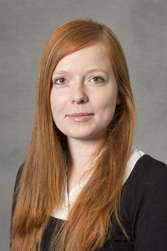Genetic Improvement – new direction in SBSE
Software engineering problems can often be reformulated as search problems. One seeks to find an optimal or near optimal solution in a wide range of candidate solutions, guided by a fitness function that distinguishes between good and bad solutions.
The talk will cover a new exciting direction in search-based software engineering, namely genetic improvement. GI uses automated search in order to improve existing software. It has resulted in dramatic performance improvements for a diverse set of properties such as execution time, energy and memory consumption, as well as results for fixing and extending existing system functionality. Work on genetic improvement has led to several awards, ranging from best paper awards to several `Humie’ awards given for human-competitive results produced by genetic and evolutionary computation.
I will give an overview of genetic improvement and present key components of a GI framework. This keynote is based on work conducted at the CREST centre at UCL.
Brief Bio:
 Justyna Petke is a Senior Research Associate at the Centre for Research on Evolution, Search and Testing (CREST) at University College London (UCL). She is interested in the connections between constraint satisfaction and search-based software engineering. Her current research focuses on genetic improvement and combinatorial interaction testing. She won several awards for her work on GI: Silver and Gold `Humie` at GECCO 2014 and 2016 and an ACM SIGSOFT Distinguished Paper Award at ISSTA 2015.
Justyna Petke is a Senior Research Associate at the Centre for Research on Evolution, Search and Testing (CREST) at University College London (UCL). She is interested in the connections between constraint satisfaction and search-based software engineering. Her current research focuses on genetic improvement and combinatorial interaction testing. She won several awards for her work on GI: Silver and Gold `Humie` at GECCO 2014 and 2016 and an ACM SIGSOFT Distinguished Paper Award at ISSTA 2015.
Presentation: sbsekeynote_v2.compressed
 Rob Hierons received a BA in Mathematics (Trinity College, Cambridge), and a Ph.D. in Computer Science (Brunel University). He then joined the Department of Mathematical and Computing Sciences at Goldsmiths College, University of London, before returning to Brunel University in 2000. He was promoted to full Professor in 2003.
Rob Hierons received a BA in Mathematics (Trinity College, Cambridge), and a Ph.D. in Computer Science (Brunel University). He then joined the Department of Mathematical and Computing Sciences at Goldsmiths College, University of London, before returning to Brunel University in 2000. He was promoted to full Professor in 2003.